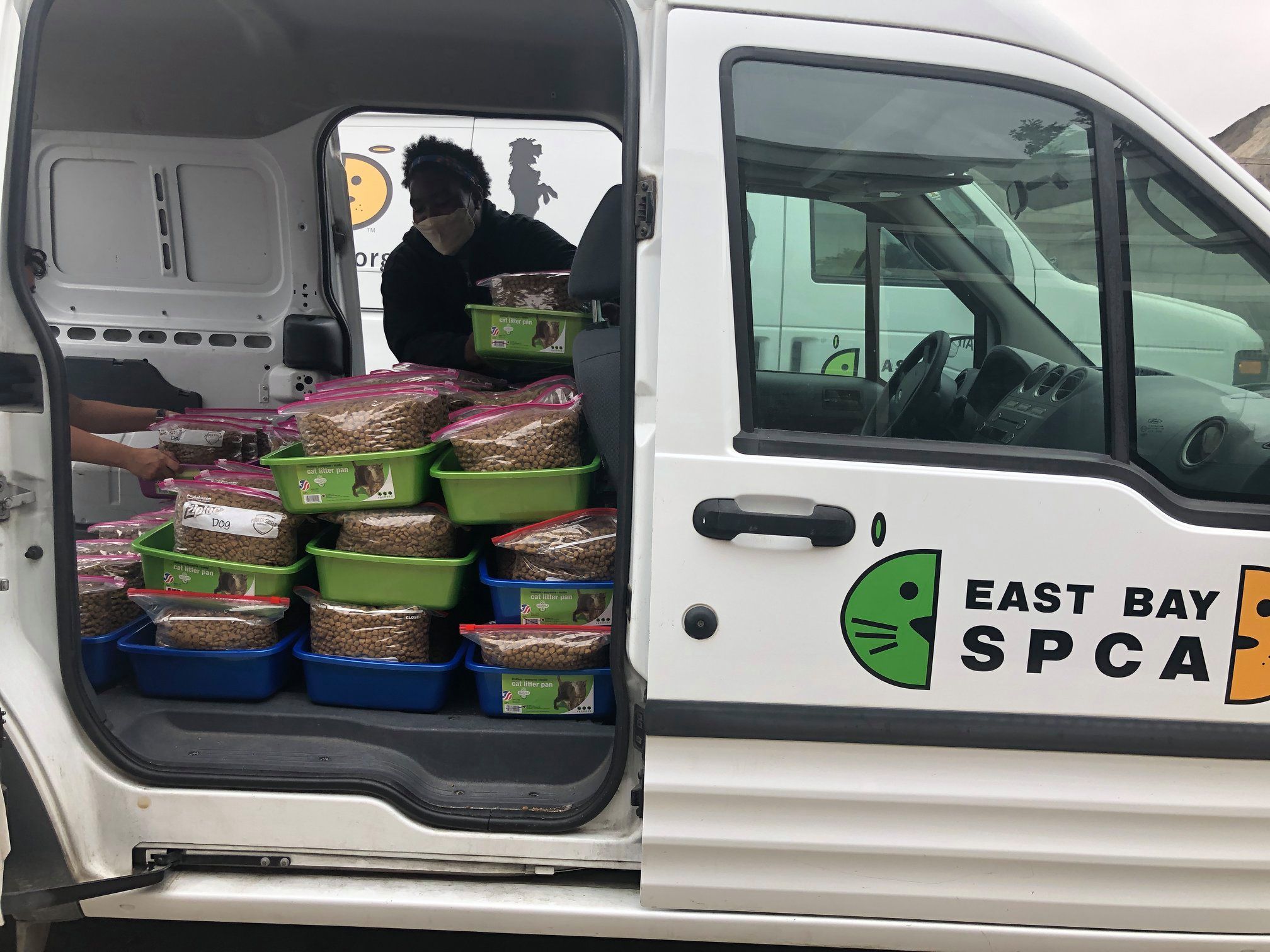News, ideas & inspiration from industry leaders

East Bay SPCA’s 4 Easy Ways to Start an Integrated Care Program
For this week’s Innovation Bank, we wanna shout out East Bay SPCA’s innovative model for collaborating with social services to help community members in crisis. Watch the 30-minute webinar here, and read on for the California agency’s tips starting your own program.
For the past 12 years, East Bay SPCA has been developing programs that help keep people and their pets together. This is especially important for marginalized groups and those in at-risk populations, because their animals can offer them protective factors. “A protective factor,” shares Raquel Bernaldo, Manager of Humane Advocacy, “is a resource and a strength that people possess that helps them pull through tough situations.”
East Bay SPCA helps maintain the strong relationships that comprise the human-animal bond in a variety of ways—financial support for veterinary medical services, a pet food pantry, and discount spay/neuter services. One of their most important programs is Hold for Home, offering temporary shelter and boarding for pets whose owners are in crises. The owners are referred by the social services agencies they are already working with, so this is a model of a case management system.
If you are interested in starting or ramping up an integrated care program at your agency, East Bay SPCA suggests the following low-barrier ways:
Pet Food Pantry
“You can do this in a minimally resourced manner for your organization,” says Bernaldo. “There are a lot of places you can reach out to for supplies. It doesn’t take much! Many community members and volunteers will be excited to donate to this.” And don’t forget some of the big pet food chain stores—many have donated food close to the expiration date and open bags to similar efforts.
Behavior Services
As behavior is becoming one of the main reasons for surrender, reach out to local trainers in your area and ask if they are willing to offer donated services, such as private behavior sessions or their time on a behavior helpline, calling back pet owners and talking them through some solutions over the phone.
Free Vaccine & Microchip Clinics
“You can do fundraising for this specifically,” suggest Bernaldo, “or reach out to medical suppliers for donations.”
Dig Into These Resources
Bernaldo recommends exploring the following:
- Pets of the Homeless is a good resource to have on hand for pet owners experiencing homelessness who need help with pet food, shelter and vet care.
- RedRover’s Safe Place for Pets is a listing of on-site and off-site housing for people and pets who need a safe escape from domestic violence.
- 211 can connect you with social services in your area—good for you to know what’s available in your community, and great as a referral to those needing assistance.
Learn More
Needed Now: Street Medicine Teams to Protect Pets of the Indigent
The Forgotten Pets of Domestic Violence: 3 Things to Think About


